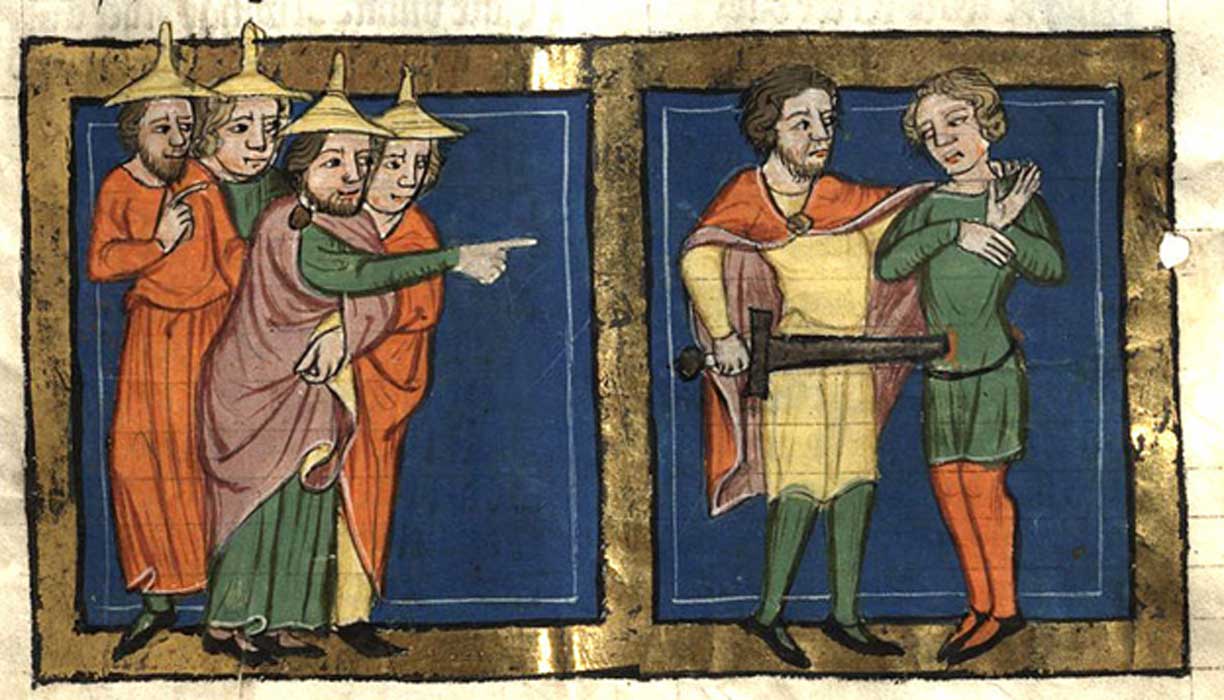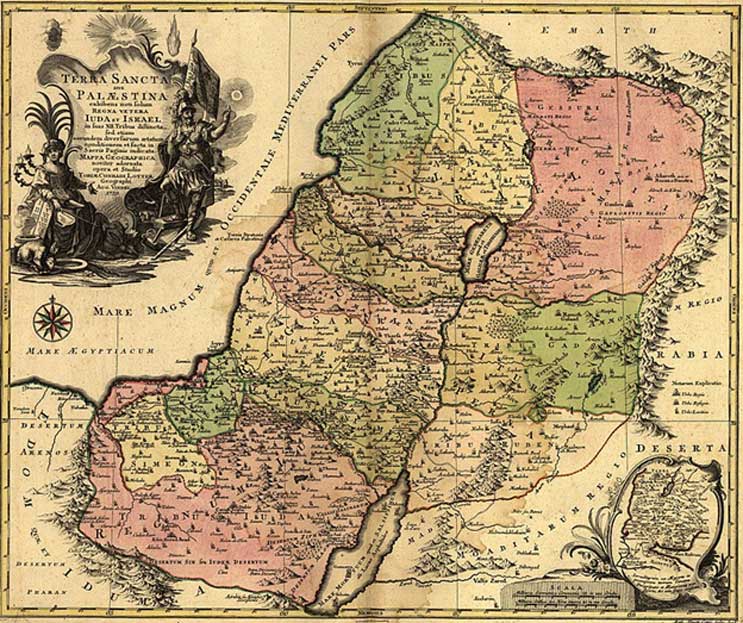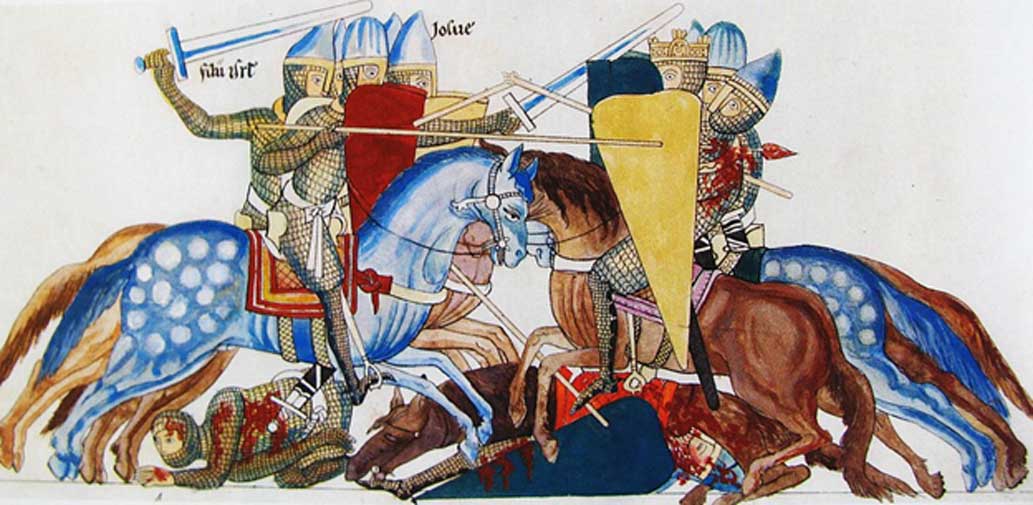
How Did the Benjamites Manage to Overthrown the Mighty Moabites: Ehud the Deliverer
After forty years had passed after settling in the promised land of Canaan, the Israelites found themselves dealing with an old adversary. Chushan-Rishathaim, the ‘twice-evil Kushite, king of Aram-Naharaim, or north-west Mesopotamia, was the first oppressor of the Israelites after their settlement in Canaan, but this time, it was the Moabites. According to the Bible: “the children of Israel did evil again in the sight of the Lord: and the Lord strengthened Eglon the king of Moab against Israel, because they had done evil in the sight of the Lord.”

Division of Palestine among the 12 tribes of Israel from the conquest; after a map by Tobias Lotter (1759). (Public Domain)
The Moabites Need to Expand
However, in reality the war with the Moabites had nothing to do with sin. The lack of tribal unification after the demise of Joshua and the disperse of the tribes each to its own territory, made them susceptible to an outside attack. Similar to the invasion by Chushan-Rishathaim, the Moabite attack under King Eglon, was not an attack on the Israelites as a whole, but an invasion to confiscate the territory that was beneficial to his kingdom’s prosperity.
Like Chushan-Rishathaim, King Eglon’s objective was to take control of a portion of the King’s Highway, that important trade route that ran adjacent to the Transjordan. In order to invade, King Eglon needed to form a coalition. “And he gathered unto him the children of Ammon and Amalek.” Once the Moabites had strengthened their forces with a coalition, they marched and defeated the tribes along the Transjordan. With the Israelite tribes living in the Transjordan area subjugated, the coalition crossed the river into the Cisjordan and swiftly took control of the ‘city of palm trees’ from the tribe of Benjamin. It was not Jericho they sought to possess, but the fertile land around the ruins, and in addition, the network of trade routes that extended westward into the hill country. Once they had secured the area, they refrained from pushing further inland, for King Eglon understood that to push further would risk much, given that his Moabite army was too small and his coalition temporary. King Eglon had gained what he had desired; the King’s Highway, the fertile lands around Jericho, and the network of roads that led west into the hill country. After King Eglon had secured and established his residency at the ‘city of palms’, the Bible states the tribes along the Transjordan served him for 18 years, with the tribe of Benjamin serving as a vassal, since King Eglon had partially established himself west of the Jordan River.

Joshua the son of Nun , fighting with the king of the Amalekites , representation from the Hortus Deliciarum the Herrad of Landsberg , (circa 1175) (Public Domain)
One can assume that during this 18-year servitude, the tribes along the Transjordan naturally rose up from time to time to challenge their master, only to fail due to lack of leadership and uniformity. The Israelites, frustrated and tired, sought a deliverer that could shake off the Moabites and regain control of the trade route. That deliverer was a left-handed Benjamite named Ehud.
Enter Ehud, the Deliverer
Why Ehud? Why was he chosen to lead the Israelites to freedom from their Moabite oppressors? While the Bible states: “the children of Israel cried unto the Lord, the Lord raised them up a deliverer,” more likely the only tribes crying out were the ones afflicted. The rest of Israel, who were unaffected, looked on with some sympathy, but refrained from aiding their kin, because only the afflicted tribes were being punished for their sins. It was a matter between the afflicted and Yahweh, and as Sicker states it: “would explain why no one in Israel would lift a finger to help the outcast tribe when it came under attack by the Moabites alliance.” But the reason no one lifted a finger to help the Benjamites was due to the Gibeah incident, an incident still fresh in the minds of the tribes of Israel that had led to the civil war.
- The Gibeah Incident: Ancient Israel’s First Civil War Over a Concubine
- Legendary Riches: Commercial Gains, Trade and Tragedy During the Reign of King Solomon
- Mystery People of the Sea— Who were the Ancient Danites & Danaan? Part I
There is no doubt that the tribes living along the Transjordan surely prayed for a deliverer, but being under direct Moabite rule there was very little they could do, and if they had tried, the outcome would have caused dire consequences to their people. The tribe of Benjamin, while serving as Moabite vassals, were in a geographical position that afforded them semi-independence from their Moabite masters, who refrained from further conquest. This allowed the Benjamites to conspire against their masters.




